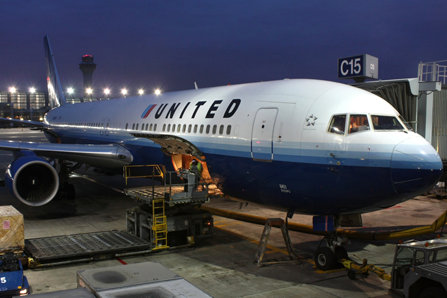
-
HOME
-
WHAT IS STANDOur Mission Our Values Our Help Contact
-
WHAT WE FIGHT FORReligious Freedom Religious Literacy Equality & Human Rights Inclusion & Respect Free Speech Responsible Journalism Corporate Accountability
-
RESOURCESExpert Studies Landmark Decisions White Papers FAQs David Miscavige Religious Freedom Resource Center Freedom of Religion & Human Rights Topic Index Priest-Penitent Privilege Islamophobia
-
HATE MONITORBiased Media Propagandists Hatemongers False Experts Hate Monitor Blog
-
NEWSROOMNews Media Watch Videos Blog
-
TAKE ACTIONCombat Hate & Discrimination Champion Freedom of Religion Demand Accountability
Smart Companies Don’t Pay for Hate
Why on earth would any company support, with add dollars, any program deliberately created to alienate a particular group from the rest of society? I’m specifically referring to Leah Remini’s A&E “Aftermath” show, a program that singles out a group, in this case a worldwide religion, and portrays it solely from the perspective of a very few who have an ax to grind—many of whom are also paid for their appearances—and chooses their narrow versions over that of millions of faithful followers. The same program has resulted in hundreds of documented threats of violence against the Church and its parishioners.

I have written earlier blogs and letters concerning corporate governance, and a corporation’s need to play fair with the public when it comes to advertising sponsorships. This sensitivity from corporations should extend to all genders, races and religions. Many corporations provide HR sensitivity training and among the top subjects is “cultural awareness.” Forgetting about right and wrong or decency versus indecency, just look at the reality of what a corporation has to be to function in the U.S. In cases of public companies, these corporations represent a very large and highly diverse group of stakeholders, whether employees, strategic partners or shareholders. Can any of these companies honestly say how many Scientologists are among them? Or for that matter, how many are African Americans, Muslims, Gays, Transgenders, Catholics or Jews?

United Airlines received some of the most horrible publicity a company could receive in the public spotlight. It cost the airline millions, cost the CEO his promotion to Chairman, and cost shareholders equity value. That was due to one passenger being grossly mistreated and injured. That passenger also made a rightful claim to an enormous amount of damages. One highly incendiary incident for a very visible public company.
Extend the United analogy to the A&E show. What if, based on unsubstantiated claims on the show, some Scientologists are seriously harmed by a nut case who believes he’s performing an act of God. Same said nut case claims that the show was his impetus. Now here’s where corporate governance matters, especially in a litigious society like ours: it would be logical for the families of the victims to heavily litigate against the show, the performers (especially the paid ones), and why not the corporate sponsors as well?
Getting paid to pick a fight is both criminal and cowardly.
If you’re a CEO, Chairman, or board member, do you want to answer to your shareholders, your customers, or Diane Sawyer as to why you were supporting that show with your ad dollars? Even if your crackerjack team of litigators can successfully argue for your company’s dismissal as a defendant, would it really be worth the chatter on social media or CNBC highlighting that you’ve allowed your company to be associated in any way with a heinous hate crime? There will be no admiration from shareholders for that act. As a CEO, you also wouldn’t want to answer to employees that are members of the group so attacked with the help of your ad dollars. That’s what’s known as a hostile work environment, to which that employee would also have a rightful claim to litigation and settlement.
With thousands of TV and radio stations and millions of hours of airtime on a plethora of non-offensive programs, couldn’t a corporate sponsor take five minutes to cue up a policy that avoids hate-based, attack programs as a depot for their ad dollars?

Getting paid to pick a fight is both criminal and cowardly. Leah Remini is paid by A&E, and, despite whatever disagreements she’s conjured up against her former religion, the average Joe can see through this so-called “actress’s” act. She would never have done the show without being paid. A&E cancelled the airing of a show about the Ku Klux Klan because of allegations that informants were paid. As Remini doesn’t do her show as a public service, this says that A&E values the lives of KKK members above those of Scientologists—a group whose members contribute generous sums towards social betterment causes such as disaster response, drug abuse prevention, literacy programs and human rights education.
Corporations should not act mindlessly. They should spend ad dollars wisely, conscientiously and not pillage the rights of one group for the sake of earning the business of those titillated by such egregious broadcasts. To do otherwise is a deplorable act against the company’s customers, employees and shareholders.
There can be no doubt that there’s validity to the corporate governance mindset in advertising sponsorships. Why else would the Wall Street Journal publish an article about this specific issue concerning the A&E show and its advertisers? Numerous companies including Ikea, Georgia-Pacific and Mastercard have wised up and exited the show as advertisers.
Smart CEOs are recognizing that everyone counts and they want to ensure their company is not a party to a smear campaign. Even Walgreens left the show so they could get back to “The Corner of Happy and Healthy.”









